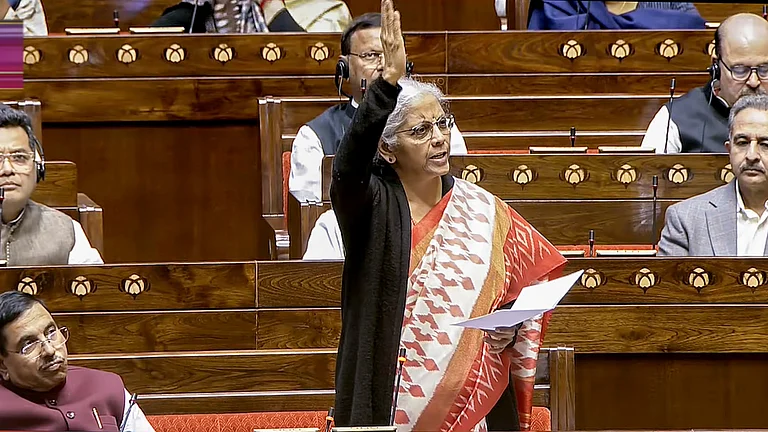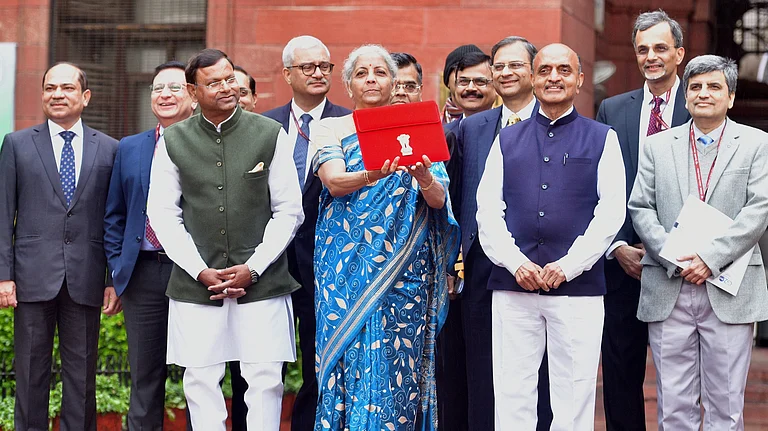India's real estate sector is on track to contribute a solid 13 per cent to the country's gross domestic product (GDP) by this year, according to the India Brand Equity Foundation (IBEF). It is also projected that the industry will reach $1 trn in market size by 2030 from $200 bn in 2021.
Certainly, the real estate sector is emerging as one of the pivotal players in the country's growth and development. But beneath this promising outlook lies a concerning imbalance — the growth is being driven primarily by the luxury segment, raising questions about inclusivity and sustainability in the broader market.
"Once a promising sector, affordable housing—homes priced under INR 40 lakh—has struggled post-pandemic, with demand and supply shrinking significantly," noted Anarock Group Chairman Group Anuj Puri.
According to Anarock, the sales share of affordable housing fell to a mere 18 per cent in 2024 from over 38 per cent in 2019. Similarly, its share of total housing supply in the top seven cities dropped to 16 per cent in 2024 from nearly 40 per cent in 2019. The segment has been on a downward spiral since the pandemic.
Meanwhile, super luxury homes demand had reached all time high in 2024. Across the top seven primary and secondary housing markets a total of 59 units were sold for Rs 4,754 crore with each priced above Rs 40 crore.
Budget in Foresight
In the last budget, the government provided marginal relief to the sector but those were not enough to boost key concerns, as experts pointed out, including direct incentives to boost the affordable housing sector.
As Finance Minister Nirmala Sitharaman will present the Union Budget 2025-26 on February 1, Piyush Bothra, who is the Co-Founder and CFO of Square Yards, highlighted that adjusting the affordable housing price cap beyond the current Rs 45 lakhs to align with rising development costs in metropolitan areas is crucial.
He also said that increasing the tax deduction limit on home loan interest from Rs 2 lakhs to Rs 4 lakhs will also provide tangible relief to aspiring homeowners.
According to a survey by Knight Frank Research, 74 per cent of 1,629 home buyers across India's Tier-I cities consider competitive interest rates and flexible loan options as crucial.
However, Puri emphasised that affordable housing requires focused attention and targeted benefits that have been lacking in the past two years, which go beyond tax breaks to boost supply and enable buyers.
"A critical issue remains the lack of urban land, particularly in areas where affordable housing is most needed," Puri noted.
Focus on Sustainable Growth
There are expectations that the government will maintain its focus on infrastructure development in this budget as the Finance Ministry also recently urged the banks and non-banking financial companies (NBFCs) to increase their participation in financing large-scale infrastructure initiatives.
"Though infrastructure development may not provide immediate relief to end-users, it remains a key driver for long-term growth in the real estate market," added the Anarock Chairman.
Bothra, on the other hand, added that introducing tax incentives under Section 80C for investments in REITs will not only promote the real estate sector as an attractive tax-saving avenue but also will draw new investors to the sector, ensuring substantial demand.
The pandemic also took a toll on the Micro, Small and Medium Enterprises (MSMEs), which slowed down the demand for affordable housing in the year 2020. The government in its last budget proposed the credit guarantee scheme for the MSME sector that could provide loans up to Rs 100 crore without guarantee if they already have the enterprise. The implementation of the same could give a boost to overall industrial development and it is also expected to have a rub-off effect on the real estate sector.
The outlined concerns call for a policy balance that will provide immediate relief measures without hampering the sector's holistic growth. It also requires a well-rounded approach just not to address the current market landscape but also to lay the foundation for a thriving real estate sector as a growth pillar of "Viksit Bharat" in the next 22 years.
































